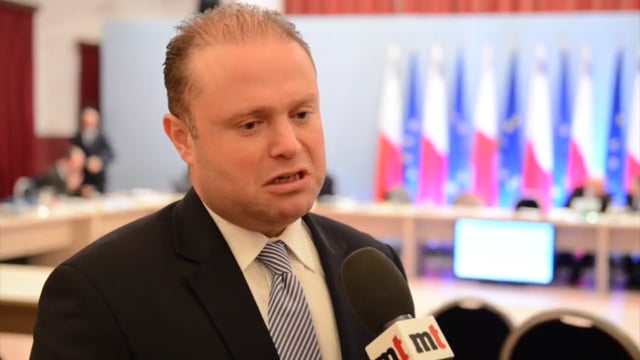[WATCH] Greece must repay debt, extending repayment period negotiable – PM
Mixed feelings among EU leaders on Alexis Tsipras’s election


The election of radical left party Syriza in Greece has left EU leaders once again split between those who support “fair policies with more social justice” and those who fear that Greece will fail to meet its commitments and repay its debts, ultimately owed to taxpayers in the Eurozone.
But EU officials have already made it clear that the new Greek administration led by Alexis Tsipras will have to repay the country’s debt, although talks on a debt maturity extension were possible.
Prime Minister Joseph Muscat told MaltaToday that Malta, as a Eurozone member, was one of the countries that helped Greece with its bailout and this commitment cannot be ignored.
“There are two sides to this debate: the new Greek administration is saying that the repayment programme is not sustainable; on the other hand, member states forked out taxpayers’ money to help Greece and we will keep on insisting to have our money back,” he said.
Earlier, Finance Minister Edward Scicluna said that Malta was prepared to engage with the new Greek government but was unwilling to write off any of the outstanding debt owed by Greece to the country.
“Any concession may be put on the table for discussion, except for writing off any of the €181 million outstanding debt,” Scicluna told an EU Economic and Financial Affairs Council meeting.
In 2011, the Maltese parliament agreed to a €74.5 million contribution to the Greek bailout.
Arguing that the Labour Party always agreed with showing solidarity with other members in the Eurozone, Muscat said he agreed with calls for flexibility in Greece’s debt repayment.
Tsipras’s party was elected on an ‘anti-austerity’ battle cry, putting the country on a possible collision with the EU over its massive bailout. Just two seats short of an absolute majority, the Greeks have essentially voted to reject a core policy devised by the European Commission, the European Central Bank and the International Monetary Fund.
The fear is now that Tsipras may take Greece out of the Eurozone, although opinion polls show that a clear majority of Greeks, 70%, want to remain in the euro.
Asked whether Syriza’s bid to write off its debt could push Greece out of the Eurozone, Muscat said the Greek bailout by the EU had been negotiated with a legitimate government that had agreed to the measures imposed by the EU.
“The bailout was a result of the unsustainable way which Greece had operated. On the other hand, I believe that there should be room for flexibility. We are not talking about writing off debts but agreeing to a longer repayment period,” Muscat said.
Undoubtedly, the European Council’s meeting in Brussels will focus on Syriza’s election. Fearing fresh economic uncertainty across Europe, EU leaders would prefer for Greece to remain in the Eurozone. At the same time, all calculations of what a Greek exit would mean have been carried out.
The Maltese prime minister said that while the EU should do all that is possible to avoid a Grexit, “we cannot do the impossible”.
Commenting on today’s parliamentary elections in Greece and the first election polls, S&D Group president Gianni Pittella welcomed Syriza’s victory and urged Tsipras to form a strong pro-European coalition: the renegotiation of Greek’s debt should no longer be considered a taboo.
“The Greek people have clearly chosen to stop the austerity imposed on them by the Troika’s diktats and ask the new government to bring in fair policies with more social justice. The renegotiation of the Greek debt, and in particular the extension of the terms of its bailout, should no longer be considered a taboo. It is now time to invest in economic growth to reduce deficit and public debt. The S&D Group has always fought for this approach in the European Parliament. The will of the Greek people should be respected by all the EU institutions and member states alike,” Pittella said.
“Should the exit polls be confirmed, the outcome of this election paves the way for a large progressive coalition. Hence, we encourage Alexis Tsipras, the leader of Syriza, which has won most votes in the election, to start negotiations with all pro-European progressive forces to form a strong and workable government. The S&D Group is ready to fully co-operate with the new progressive government, which is expected to seriously fight against tax evasion, tax avoidance and corruption.”
The EPP were however less joyful at Tsipras’s successful election: “It is disappointing to see that the right and honest path chosen by PM Antonis Samaras for Greece was not acknowledged. The reform path is bearing fruit and needs to be continued. Soon it will become clear that the promises given to the Greek people by Syriza candidate Tsipras are nothing but electoral lies. European taxpayers will not be ready to pay for Mr Tsipras' empty promises. Europe stands ready to show solidarity with Greece if the commitments agreed upon are fully respected. All commitments must be fulfilled,” EPP group chairman Manfred Weber said.




.jpeg)

.jpg)










.png)





